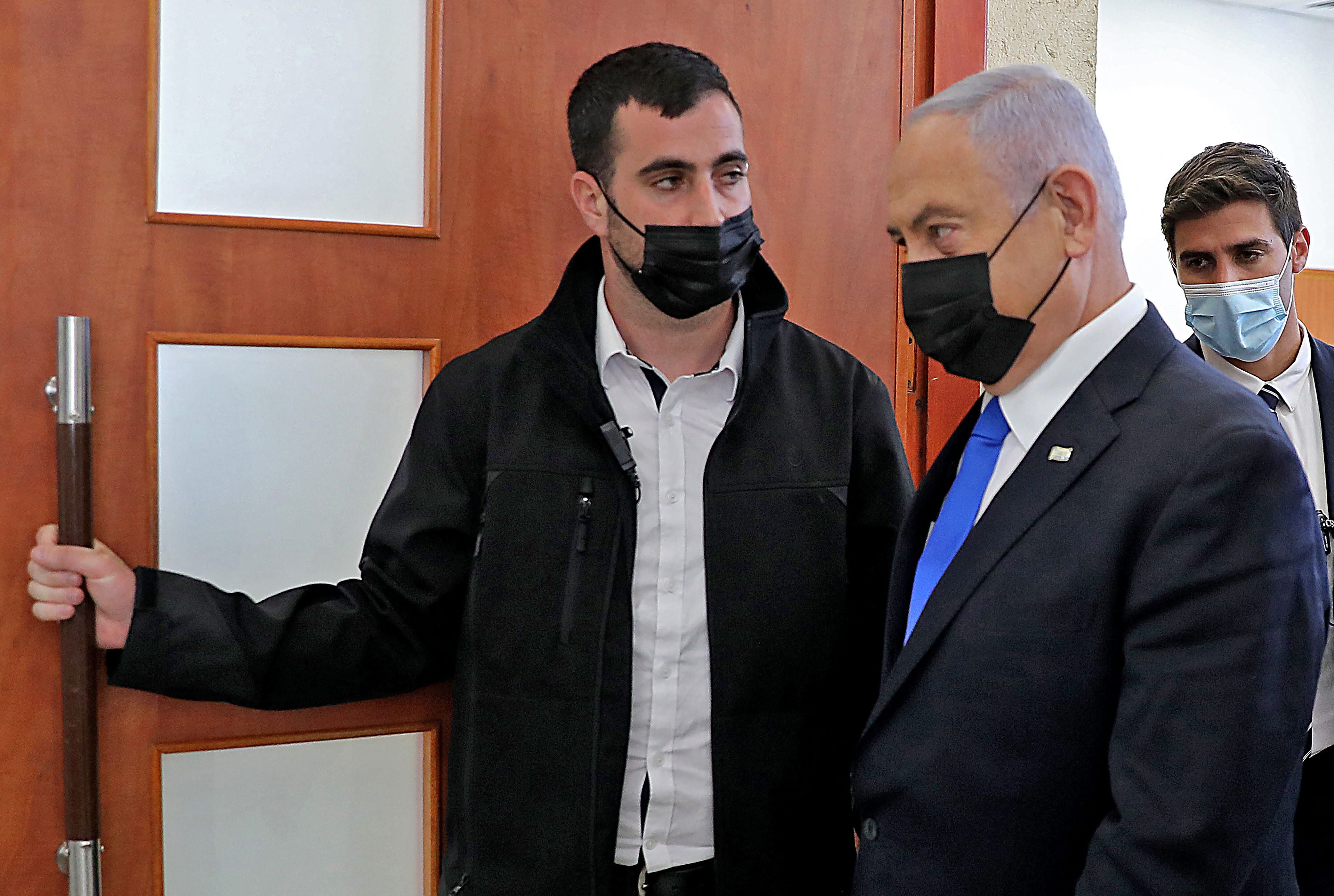Benjamin Netanyahu asked to try to form Israel’s next government
Israel’s general election last month produced no clear winner

Israel’s president, Reuven Rivlin, has nominated the country’s prime minister, Benjamin Netanyahu, to try to form a coalition government.
Mr Netanyahu, the country’s longest-serving leader, will now have 28 days to break the political impasse and form a governing coalition, but can request a two-week extension from the president.
The president can also assign the task to someone else if no government is formed.
Last month’s inconclusive general election – an unprecedented fourth in just two years – means there will be furious negotiations over the next few weeks as Mr Netanyahu attempts to win over enough parties to form the 61-seat majority needed to rule.
Mr Netanyahu, who is the leader of the Likud Party, received the most amount of recommendations during consultations held with Mr Rivlin, securing the endorsement of 52 lawmakers in the 120-member Knesset.
Read more:
The centrist and former finance minister Yair Lapid of the Yesh Atid Party gleaned 45 endorsements and former defence minister Naftali Bennett of the far-right Yamina Party got seven. In his announcement, Mr Rivlin acknowledged the fact that no one had secured enough support to quickly form a government, noting that many believe Mr Netanyahu is unfit to serve in light of his legal problems.
Nonetheless, he said that there was nothing in the law preventing Mr Netanyahu from serving as prime minister, and that after consulting with the 13 parties in the newly elected parliament, he believed that Mr Netanyahu had the best chance of any candidate of forming a new government.
“No candidate has a realistic chance of forming a government that will have the confidence of the Knesset,” Mr Rivlin said. But, he said, Mr Netanyahu had a “slightly higher chance” of being able to. “I have decided to entrust him with the task,” Mr Rivlin said. Mr Netanyahu now has up to six weeks to cobble together a coalition during his trial.
Israel has been stuck in a political stalemate, with the four elections, seen by many as referendums on Mr Netanyahu’s rule, all proving inconclusive.
The five-term prime minister has campaigned in the shadow of three corruption cases, the charges of which he has vehemently and repeatedly denied.
The invitation from President Rivlin came on the same day as Mr Netanyahu faced corruption charges in court.
Mr Netanyahu attended part of Monday’s court hearing, and once again accused the prosecution of “an attempted coup” aimed at ousting a “strong, right-wing prime minister”. He has urged Mr Bennett and another right-wing rival, Gideon Sa’ar – who founded the right-wing New Hope Party after leaving the prime minister's conservative Likud – to join him to break the deadlock.
But Mr Bennett, who has had a tumultuous relationship with Mr Netanyahu, was non-committal about teaming up again and is expected to demand hefty ministerial portfolios in exchange for support.
Meanwhile, Mr Sa’ar has said he would not serve under Mr Netanyahu, citing the prime minister's corruption trial as the reason. However, he has also stopped short of endorsing Mr Lapid, who is seen to be too left-wing for Mr Saar’s supporters.

With Mr Rivlin’s decision pending, Mr Lapid said on Monday he had proposed a coalition deal to Mr Bennett. Under the arrangement, Mr Bennett would serve first as prime minister and then Mr Lapid would take over.
"The Israeli public needs to see that its leaders can work together," Mr Lapid said in a televised address.
Meanwhile Mr Netanyahu’s court hearings continue and Monday’s sessions focused on the most serious case against him — in which he is accused of promoting regulations that delivered hundreds of millions of dollars of profits to the Bezeq telecom company in exchange for positive coverage on the firm’s popular news site, Walla.
Ilan Yeshua, Walla’s former chief editor, described a system in which Bezeq’s owners, Shaul and Iris Elovitch, repeatedly pressured him to publish favourable things about Mr Netanyahu and smear the prime minister’s rivals.
The explanation Mr Yeshua was given by the couple? “That’s what the prime minister wanted,” he said.
Agencies contributed to this report
Join our commenting forum
Join thought-provoking conversations, follow other Independent readers and see their replies
Comments
Bookmark popover
Removed from bookmarks